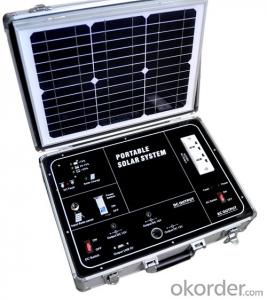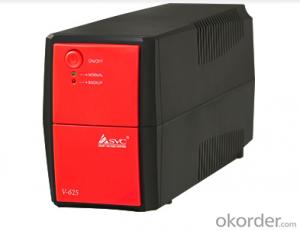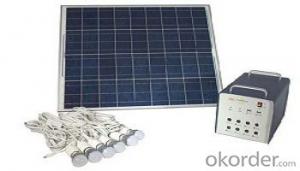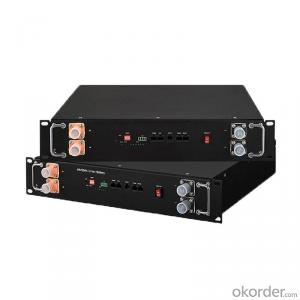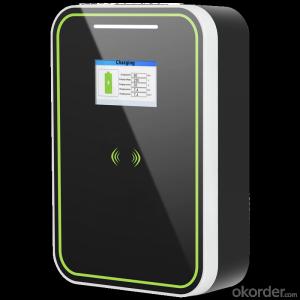Solar cable Connector ST01 M F
- Loading Port:
- China Main Port
- Payment Terms:
- TT OR LC
- Min Order Qty:
- -
- Supply Capability:
- 10000 set/month
OKorder Service Pledge
OKorder Financial Service
You Might Also Like
Solar Cable-Connectors,Due to highly robustness,UV-resistance,the touch protection a high grade connection is guaranteed for many years
Rated voltage 1000 V
Rated current 22A
Protection degree(mated,junction box closed/unmated) IP67/IP2X
Operating temperature -40 °c to +85 °c
Contact material Copper,silver plated
Insulation materical PC/PA
Locking system Snap in
- Q:Can solar energy systems be used in areas with limited access to solar mounting systems?
- Yes, solar energy systems can still be used in areas with limited access to solar mounting systems. There are alternative mounting options available such as ground-mounted systems, pole-mounted systems, or even floating solar panels. These alternatives allow solar energy systems to be deployed in various locations, even in areas where traditional mounting systems may not be feasible or accessible.
- Q:How does a solar panel convert sunlight into electricity?
- A solar panel converts sunlight into electricity through the photovoltaic effect. When sunlight hits the solar panel's surface, it excites the electrons in the panel's semiconductor material, creating an electric current. This current is then captured and converted into usable electricity for powering various devices or stored in batteries for later use.
- Q:How does the efficiency of solar panels degrade over time?
- The efficiency of solar panels degrades over time due to various factors such as exposure to sunlight, temperature fluctuations, and the natural wear and tear. This degradation is primarily caused by the gradual degradation of the solar cells themselves, which can experience a decrease in their ability to convert sunlight into electricity. Additionally, environmental factors like dust accumulation and shading can also contribute to the decline in efficiency. Regular maintenance and cleaning can help mitigate some of these effects, but it's important to note that solar panels will still experience a gradual decrease in efficiency over their lifespan.
- Q:Can solar energy systems be used in areas with frequent hurricanes?
- Yes, solar energy systems can be used in areas with frequent hurricanes. However, it is important to design and install them in a way that takes into account the specific challenges posed by hurricanes, such as high winds and potential debris impact. Reinforced mounting systems, robust solar panels, and proper installation techniques can help ensure the durability and resilience of solar energy systems in hurricane-prone areas. Additionally, incorporating battery storage can provide energy backup during power outages caused by hurricanes.
- Q:What is concentrated solar power (CSP)?
- Concentrated solar power (CSP) is a renewable energy technology that uses mirrors or lenses to concentrate sunlight onto a small area, typically a receiver or a solar tower. This concentrated sunlight produces heat, which is then used to generate electricity through steam turbines or other heat engines. CSP systems can store energy for later use, making it a reliable and efficient source of power.
- Q:What are the environmental impacts of solar energy systems?
- Solar energy systems have numerous environmental benefits, including reducing greenhouse gas emissions, minimizing air and water pollution, and preserving natural resources. However, the manufacturing and disposal processes of solar panels can generate some waste and require energy inputs. Additionally, land use for large-scale solar installations can impact local ecosystems. Overall, the environmental impacts of solar energy systems are significantly lower compared to conventional energy sources.
- Q:Can solar energy systems be used in areas with limited access to solar connectors and cables?
- Yes, solar energy systems can be used in areas with limited access to solar connectors and cables. Off-grid solar systems, such as stand-alone solar power systems or solar generators, are designed to function independently from the main power grid. These systems typically include batteries for energy storage, allowing the generated solar energy to be used even during periods of limited sunlight or at night. Therefore, they can be deployed in remote areas or areas with limited infrastructure, providing sustainable and reliable power solutions.
- Q:Can solar energy systems be used in areas with high levels of electromagnetic interference?
- Yes, solar energy systems can be used in areas with high levels of electromagnetic interference. However, it is important to ensure proper shielding and grounding to minimize the impact of electromagnetic interference on the performance of solar panels and related equipment.
- Q:Can a solar energy system be installed on commercial buildings?
- Yes, a solar energy system can be installed on commercial buildings. In fact, many commercial buildings have already embraced solar energy as a viable and sustainable way to generate electricity. Commercial buildings provide ample rooftop space or open land areas that can be used to install solar panels. These panels can be integrated into the building's design or mounted on the rooftop, allowing them to capture sunlight and convert it into electricity. Installing a solar energy system on a commercial building offers several benefits. Firstly, it can help reduce energy costs significantly, as solar energy is a renewable and free source of power. Secondly, it can provide a clean and environmentally friendly alternative to traditional energy sources, reducing the building's carbon footprint. Additionally, commercial buildings with solar panels can benefit from various government incentives and tax credits that promote the use of renewable energy. Overall, the installation of a solar energy system on commercial buildings is not only feasible but also financially and environmentally advantageous.
- Q:How do solar energy systems impact the resale value of a commercial building?
- A commercial building's resale value can be positively influenced by solar energy systems, as several factors contribute to this increase. To begin with, solar energy systems present the building owner with potential energy savings. By harnessing electricity from the sun, the building can decrease its reliance on conventional energy sources, resulting in reduced utility bills. This cost savings can be an appealing selling point for potential buyers, as it not only lowers operational expenses but also offers a more sustainable and environmentally friendly solution. Additionally, solar energy systems are regarded as a long-term investment. They typically come with warranties and have a lifespan of 25 to 30 years or more. This means that a commercial building equipped with a solar system can provide a dependable and consistent source of renewable energy for many years to come. Buyers are often attracted to this added value, as it instills a sense of security and minimizes future energy costs. Moreover, the installation of solar energy systems showcases the building owner's dedication to sustainability and environmental responsibility. In today's market, there is an increasing demand for eco-friendly buildings and businesses that prioritize renewable energy sources. This can entice buyers who share the same values and are willing to pay a premium for a building that aligns with their sustainability objectives. Lastly, the presence of a solar energy system can enhance the overall marketability of a commercial building. With growing awareness and interest in renewable energy, potential buyers may actively seek out properties with solar installations. This heightened demand can lead to a competitive bidding process, potentially driving up the resale value of the building. It is important to acknowledge that the impact of solar energy systems on a commercial building's resale value can vary based on factors such as location, size, and system efficiency. Additionally, market conditions and buyer preferences also play a role. However, overall, solar energy systems have the potential to positively influence a commercial building's resale value by reducing energy costs, providing long-term benefits, attracting sustainability-focused buyers, and enhancing marketability.
1. Manufacturer Overview |
|
|---|---|
| Location | |
| Year Established | |
| Annual Output Value | |
| Main Markets | |
| Company Certifications | |
2. Manufacturer Certificates |
|
|---|---|
| a) Certification Name | |
| Range | |
| Reference | |
| Validity Period | |
3. Manufacturer Capability |
|
|---|---|
| a)Trade Capacity | |
| Nearest Port | |
| Export Percentage | |
| No.of Employees in Trade Department | |
| Language Spoken: | |
| b)Factory Information | |
| Factory Size: | |
| No. of Production Lines | |
| Contract Manufacturing | |
| Product Price Range | |
Send your message to us
Solar cable Connector ST01 M F
- Loading Port:
- China Main Port
- Payment Terms:
- TT OR LC
- Min Order Qty:
- -
- Supply Capability:
- 10000 set/month
OKorder Service Pledge
OKorder Financial Service
Similar products
New products
Hot products
Hot Searches
Related keywords






